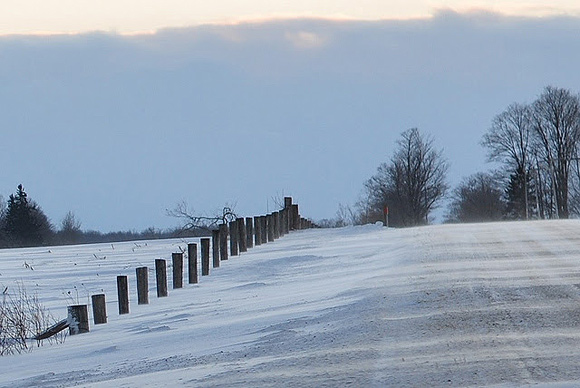I sit at the prayer bench before my bedroom window.
Outside, our boys roll millions of flakes into a snow fort.

I read the passage in the Bible open in front of me, one I remember from the musty basement of the Knox Presbyterian Church Sunday school. Uh, yeah — I think I know this one. Yeah... Jesus restores ten lepers to wholeness. And only one returns to offer any thanks. I remember the moral too, Mrs. Morrison and her glossy red lipstick: "How often do you remember to say thanks?" Yeah, I think I know this one.
I skim.
One of them, when he saw he was healed, came back, praising God in a loud voice. He threw himself at Jesus' feet and thanked him—and he was a Samaritan (Luke 17:15-16 NIV).Yeah, yeah, thankfulness, I know. Next verse.
Jesus asked, "Were not all ten cleansed? Where are the other nine? Was no one found to return and give praise to God except this foreigner?" Then he said to him, "Rise and go; your faith has made you well" (Luke 17:17-19 NIV).
Wait.
I trace back. Hadn't Jesus already completely healed him? Exactly like the other nine who were cured who hadn't bothered to return and thank Him.

So what does Jesus mean, "Your faith has made you well"? Had I under-interpreted this passage, missed some hidden mystery?
I slow down and dig. Read Jesus' words in Young's Literal Translation of the Bible:
And [Jesus] said to him, "Having risen, be going on, thy faith has saved thee."
"Saved thee"? I dig deeper. It's sozo in the Greek. Many translations render sozo as being made "well" or "whole," but its literal meaning? I read it — "to save." Sozo means salvation.
Sozo — it means true wellness, complete wholeness. To live sozo is to live the full life. Jesus came that we might live life to the full; He came to give us sozo.
And when did the leper receive sozo — the saving to the full, whole life? When he returned and gave thanks. I lay down my pen.
Our very saving is associated with our gratitude.
Mrs. Morrison hadn't mentioned this. But... yeah, of course.
If our fall in the Garden of Eden was the non-eucharisteo, non-thanksgiving, the ingratitude for all that God had given and longing from the one tree He'd forbidden us to eat from — then salvation must be intimately related to eucharisteo, the giving of thanks.

I look back to the text. That is what it says: "Thy faith has saved thee." And the leper's faith was a faith that said thank you. Is that it?
Jesus counts thanksgiving as integral in a faith that saves.
We only enter into the full life — into sozo — if our faith gives thanks.
Because how else do we accept His free gift of salvation if not with thanksgiving?
Thanksgiving is the evidence of our acceptance of whatever He gives.
Thanksgiving is the manifestation of our "Yes!" to His Grace.
Thanksgiving is inherent to a true salvation experience; thanksgiving is necessary to live the well, whole, fullest life — sozo!
"If the church is in Christ, its initial act is always an act of thanksgiving, of returning the world to God," writes Orthodox theologian Alexander Schmemann. If I am truly in Christ, mustn't my initial act, too, always be an act of thanksgiving, returning to Jesus with thanks on the lips?
I would read it much later in the pages of the Psalms. At the close of a Communion service as the bread and the wine were returned to the table. The Farmer would hand his Bible over to me, his finger holding the verse for me to see because he had just read it there, what I had been saying, living, believing —- and the chin would quiver before I'd brim at the way God shows His salvation:
He who sacrifices thank offerings honors me, and he prepares the way so that I may show him the salvation of God (Psalm 50:23 NIV).
Thanksgiving — giving thanks in everything — prepares the way that God might show us His fullest salvation in Christ.
At the Eucharist, Christ breaks His heart to heal ours — Christ, the complete accomplishment of our salvation.
And the miracle of eucharisteo never ends: thanksgiving is what precedes the miracle of that salvation being fully worked out in our lives.
Thanksgiving — giving thanks in everything — is what prepares the way for salvation's whole restoration. Our salvation in Christ is real, yet the completeness of that salvation is not fully realized in a life until the life realizes the need to fully give thanks. In everything?
I would never experience the fullness of my salvation until I expressed the fullness of my thanks everyday, and eucharisteo is elemental to living the saved life.
Mrs. Morrison hadn't told me this either.
And sitting there before the window, I'm struck, a comet blazing across the dark places in my life. All those years thinking I was saved and had said my yes to God, but was really living the no. Was it because I had never fully experienced the whole of my salvation? Had never lived out the fullest expression of my salvation in Christ?

Because I wasn't taking everything in my life and returning to Jesus, falling at His feet and thanking Him.
I sit still, blinded by the light of it, the truth of it — and am un-blinded. This is why I sat all those years in church, but my soul holes had never fully healed.
Eucharisteo, the Greek word with the hard meaning and the harder meaning to live — this is the only way from emptiness to full.
I watch our boys carve in the wall of their snow fort.
They dig and their cheeks flame with the heat of the work, their hair damp with the effort.
The packed snow of the fort gives way and there it is. A door in the wall.
Eucharisteo.

Excerpt from One Thousand Gifts: A Dare to Live Fully Right Where You Are.
Also see, One Thousand Gifts Devotional Journal.

All pictures from Ann Voskamp.
This article from Ann's incredible blog, A Holy Experience. Ann Voskamp is a beloved author, blogger, Compassion advocate, wife, and mother.
Ann's teaching, writing, speaking, and photography have blessed thousands.
For more on Ann, check out her blog called A Holy Experience and check out her books and other resources.









Reader Comments
Archived Facebook Comments